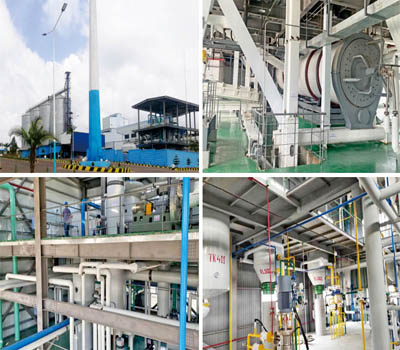Common problems and solutions of palm oil refining
Palm oil is a kind of vegetable oil widely used in food, cosmetics and industry. However, in the refining process, some technical problems may be encountered, which not only affect the product quality, but also may lead to an increase in production costs. The following are common problems and solutions in palm oil refining.

1. The acid value is too high
Palm oil may have too high acid value due to insufficient freshness of raw materials or improper storage before refining. High acid value will affect the quality of oil and reduce the acceptance of consumers. The key to solve this problem is to optimize the storage conditions of raw materials and keep them dry at low temperature. At the same time, alkali refining can be used in the refining process to neutralize free fatty acids through chemical reactions, thus reducing the acid value.
2. Uneven or dark color
The uneven or dark color of palm oil is usually caused by high natural pigment content in raw materials or insufficient decoloration process. In order to solve this problem, efficient adsorbents (such as activated clay) can be used to remove pigments in the decoloration stage. In addition, the effect can be optimized by adjusting the decoloring temperature and time.
3. Odor residue
Unrefined or improperly treated palm oil may leave odor and affect the sensory quality of the product. Odor usually comes from oxidation products or impurities in raw materials. Deodorization process is a key link in refining process, and odor can be removed by high temperature steam treatment. In addition, ensuring the cleanliness of raw materials and avoiding too long storage time are also important measures to reduce odor.
4. Poor oxidation stability
Poor oxidation stability will lead to rapid deterioration of palm oil during storage. This problem is usually related to the lack of antioxidants or the failure to completely remove oxidation inducers in refining process. Solutions include adding proper amount of antioxidants (such as vitamin E or butylated hydroxyanisole) and optimizing degumming and deacidification processes to reduce oxidation risk.
5. Residual impurities
Residual impurities (such as phospholipids, waxes or heavy metals) will affect the purity and safety of palm oil. These impurities usually come from insufficient cleaning of raw materials or equipment. In the refining process, these impurities can be effectively removed by multistage filtration, degumming and dewaxing. In addition, regular maintenance of equipment to avoid cross-contamination is also a necessary measure.
The problems in palm oil refining mainly focus on acid value, color, odor, oxidation stability and impurity control. By optimizing the technological process, selecting suitable auxiliary materials and strictly managing raw materials and equipment, the refining quality of palm oil can be effectively improved and the production of high-quality products can be guaranteed. Meanwhile, continuous technical improvement and innovation will also promote the development of palm oil industry.
